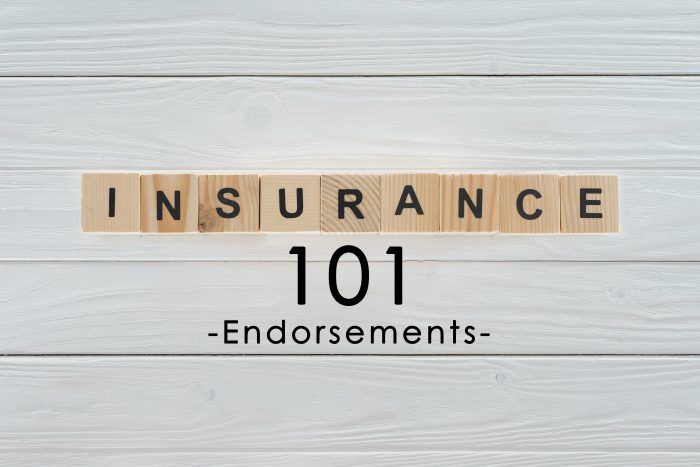
Knowing the basic insurance terms can help you be knowledgeable if you ever get caught in a conversation about insurance. Also, a good majority of people who pay for insurance don’t understand exactly what it is they’re paying for. It may help you understand where you’re spending your money and why.
An insurance policy states the basics of your policy, such as who, what, when—who is covered, what is covered, what’s not covered, and when these things are covered. Not everything that goes wrong to your house or car can be covered by insurance. For example, after a rainstorm, your roof starts leaking. However, the roof is 40 years old. Things like normal wear and tear will not be covered by insurance. Knowing what isn’t covered can help you build a more extensive, supportive policy. What does this mean? This leads to the question:
What is an endorsement?
Endorsements are added coverages, similar to amendments, to your policy. Say, for example, you have a named peril homeowner’s insurance policy. This basically means that the risks covered by the policy are specifically listed, which excludes everything not listed from being covered. Your drains and the sewer are backed up, which is excluded on your policy, and you can’t get coverage. This is what adding endorsements can prevent.
Next time you purchase or amend your insurance policy, make sure to consider which risks have the potential to impact you the most, and see what an agent can do to help.









